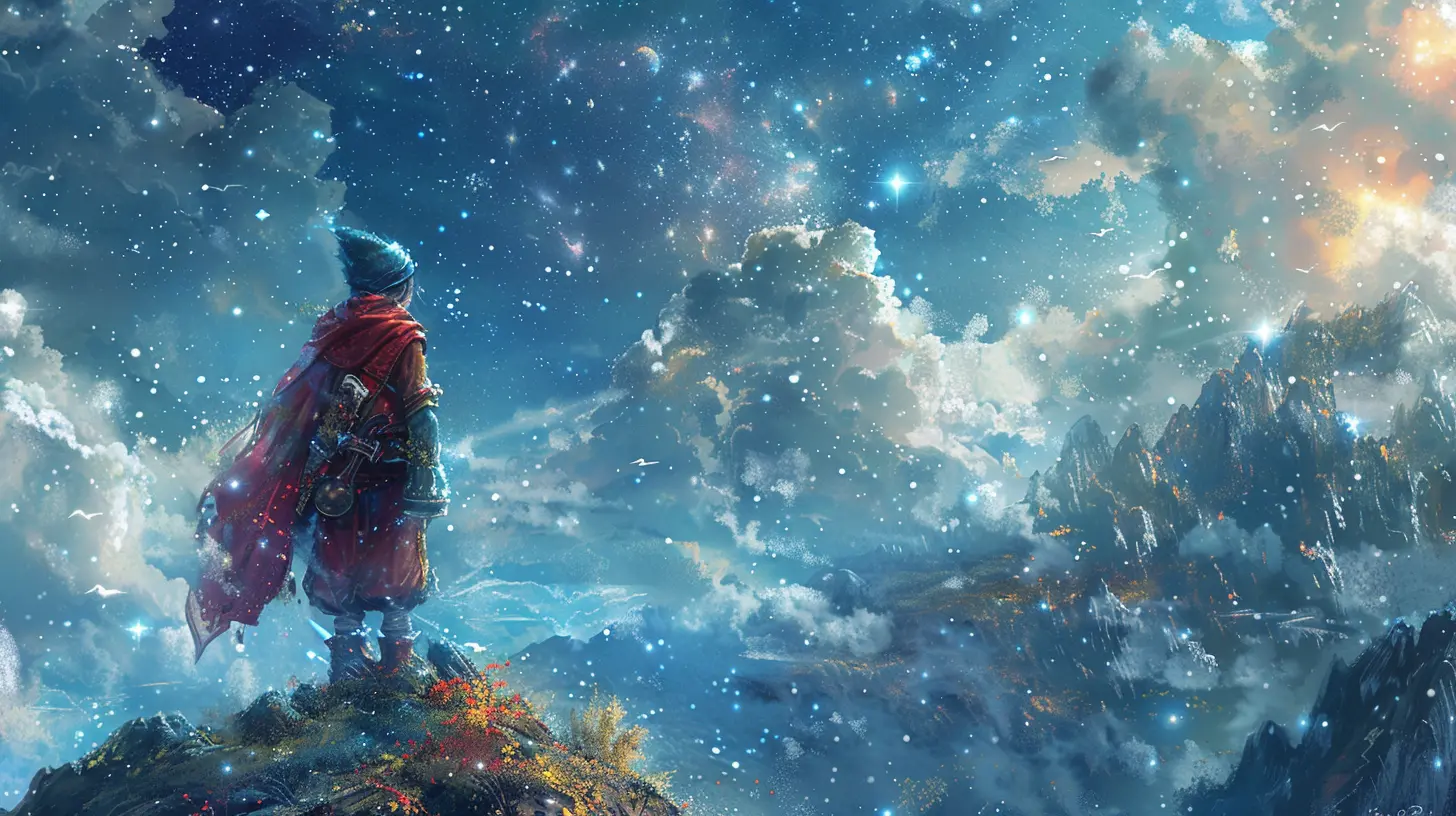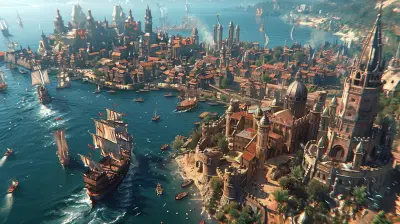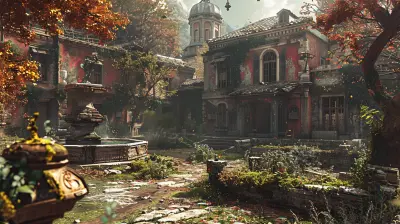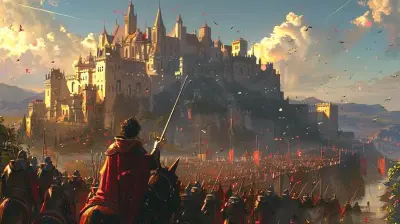12 March 2025
If you’re a fan of gaming, there’s a good chance you’ve at least dipped your toes into the vibrant world of JRPGs (Japanese Role-Playing Games). These games have captured our imaginations for decades, but they’re about so much more than just battles, leveling up, and shiny loot. One of the most magical things about JRPGs is how they allow us to escape into rich, otherworldly cultures. They whisk us away to fantastical lands brimming with unique traditions, deep lore, and diverse societies. Pretty cool, right?
So, why do JRPGs stand out when it comes to cultural escapism? Grab your gear (or your nearest gaming controller) and let’s dive deep into how these games invite us into entirely new worlds that feel alive and relatable, despite being worlds apart from our own.
1. What Makes JRPGs So Special?
Let’s face it: JRPGs are not your average games. While video games as a medium are designed to immerse, there’s just something about JRPGs that hits different. From the moment the opening sequence starts, you’re often plunged into a universe that oozes creativity. Whether it’s the floating cities in Final Fantasy, the sprawling kingdoms in Dragon Quest, or even the ethereal worlds of Tales of Arise, you know you’re in for a treat.But here’s the thing: JRPGs don’t just give you a flashy setting and call it a day. No, they take it a step further. They create entire societies with their own rules, religions, politics, languages, and folklore. You’re not just walking through pretty landscapes—you’re becoming part of a living, breathing world. It's like stepping into a fantasy novel but with the added bonus of being able to interact with the story.
2. Unique Storytelling: A Portal to Other Cultures
What’s a JRPG without a story? Honestly, the storytelling is a huge selling point in why we’re so drawn to these games. Unlike Western RPGs that may lean more on open-world exploration, JRPGs tend to focus on guided narratives. And oh boy, do they know how to tell a story!Many JRPGs are inspired by Japanese mythology, history, and Eastern philosophies, blending these influences with universal themes like friendship, loss, and redemption. Think about Persona 5, which doesn’t just explore a fantastical narrative—it also gives you a crash course on Japanese societal pressures like overwork, corruption, and conformity. Or Final Fantasy X, where you get to explore a culture steeped in religious traditions and rituals akin to ancient tribal practices.
These games don’t just tell a story; they let you live it. You’re not just playing as a character—you’re uncovering and adapting to the culture they were born into. Isn’t that wild?
3. The Art of Worldbuilding: Nothing Feels Out of Place
You know that feeling when you get sucked into a world and everything just clicks? That’s worldbuilding done right, and JRPGs are masters of it. From bustling cities to eerily quiet villages, every detail serves to make the world feel authentic and alive.Take Ni No Kuni for example. The game is practically a Studio Ghibli film brought to life, where every location feels whimsical yet grounded in its own logic. Or look at Chrono Trigger, where traveling through time layers culture upon culture, giving you a patchwork view of a world’s evolution. Even the food, clothing, and architecture in these games serve as windows into the imaginary cultures they’ve built.
It’s like traveling abroad, but instead of booking a flight, you’re immersed in lands that blend magic with reality. And the best part? No passport required.
4. Music and Visuals: Setting the Cultural Tone
Have you ever closed your eyes while playing a JRPG and just let the music transport you? That’s not an accident. JRPGs use music to breathe life into their worlds, and oftentimes, the soundtrack feels like a cultural artifact all by itself.Look at Octopath Traveler. Its soundtrack evokes a sense of medieval European culture. Then there’s Final Fantasy XIV, where the music changes drastically depending on the region you’re exploring—giving each location its own identity.
And let’s not forget about the visuals. Whether it’s the watercolor-inspired towns of Legend of Mana or the steampunk-meets-fantasy aesthetic of Final Fantasy VI, the artwork in these games can make you stop mid-quest just to take it all in. These elements work together to immerse you in a culture that feels fully fleshed out—down to the smallest detail.
5. Culture Through Characters: People You’ll Never Forget
We can’t talk about JRPGs without gushing over the characters. Honestly, they’re one of the main reasons we keep coming back. But what makes them so captivating isn’t just their personalities—it’s how they embody the cultures they come from.Take Yuna from Final Fantasy X. Her quiet demeanor and devotion to her pilgrimage are deeply tied to the world of Spira and its religious traditions. Then there’s Zidane from Final Fantasy IX, who brings a roguish charm that blends perfectly with a more lighthearted, carnival-esque setting. These characters aren’t just tossed into a story—they’re products of their environments, shaped by the culture and history of the world they inhabit.
And through them, we get a front-row seat to these otherworldly cultures. It’s like meeting a new friend who shows you around their hometown, only in this case, the town might have floating islands or dragon-riding knights.
6. Escapism Meets Reflection: What We Take Away
While JRPGs are pure escapism at heart, they also have a way of making us reflect on our own world. The cultures you experience in these games often serve as mirrors to real-life societies, subtly (or sometimes not so subtly) challenging you to think about topics like inequality, tradition, or the concept of destiny.For example, the political intrigue in Fire Emblem: Three Houses isn’t just exhilarating gameplay—it’s also a deep dive into themes of loyalty, heritage, and the weight of leadership. By exploring these fictional cultures, we get a new perspective on our own. It’s like taking a vacation and coming home with a new appreciation for your daily life.
7. Why We Keep Coming Back
So, why do we keep coming back to JRPGs, even when our backlogs are bursting at the seams? Because they let us dream. They give us a break from the mundanity of our 9-to-5s and throw us headfirst into worlds where magic is real, airships roam the skies, and every quest feels like a grand adventure.But it’s more than that. These games connect us to stories and cultures that feel authentic, even though they’re make-believe. They’re a reminder of how vast and diverse the human imagination is, and honestly? We could all use a little more wonder in our lives.
Final Thoughts
JRPGs are more than just games—they’re portals to entirely new worlds, complete with their own cultures, histories, and traditions. Whether you’re a longtime fan or just starting your JRPG journey, these games offer something truly special: the chance to escape our reality while experiencing the beauty of another.So, next time you boot up a JRPG, take a moment to soak it all in—the architecture, the customs, the food, the people. Because in those moments, you’re not just playing a game—you’re stepping into a culture, and that’s a pretty magical experience.






Winter Lambert
JRPGs beautifully transport us to vibrant, immersive worlds! Enjoy!
April 1, 2025 at 3:07 PM